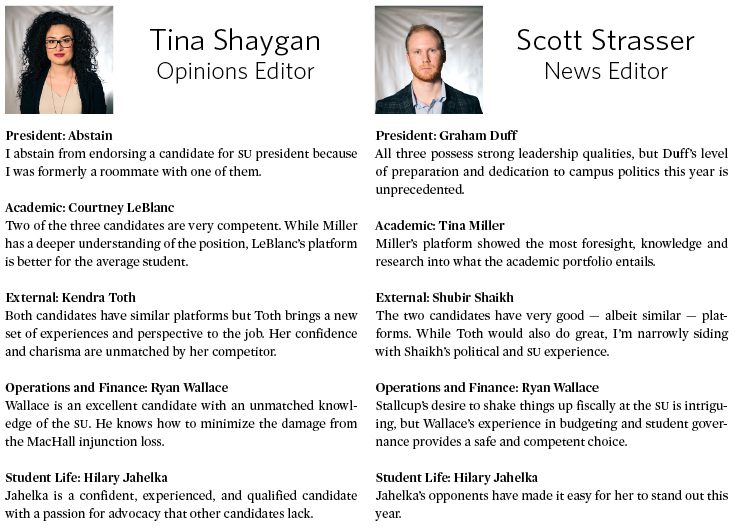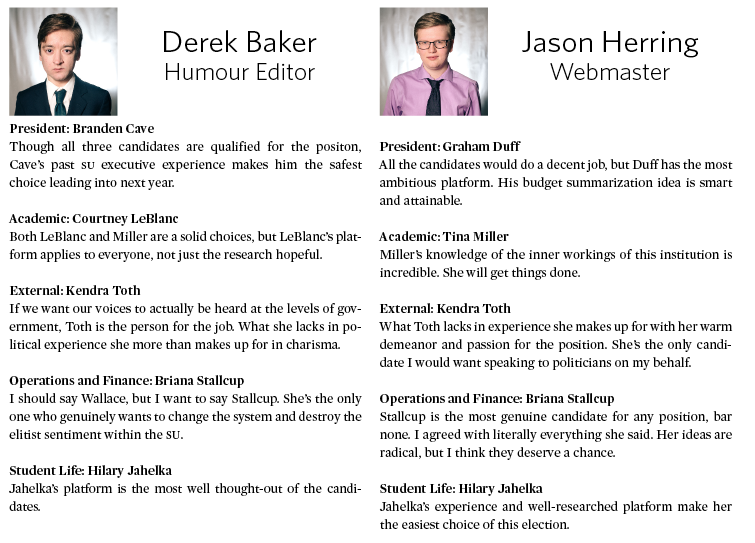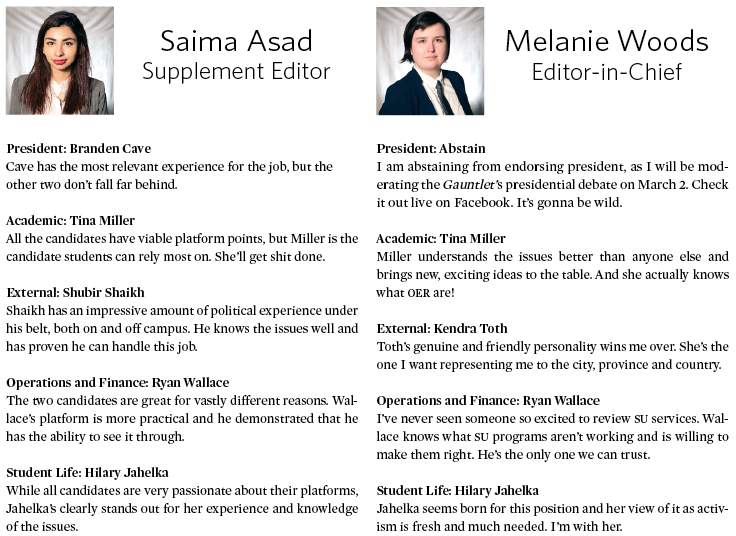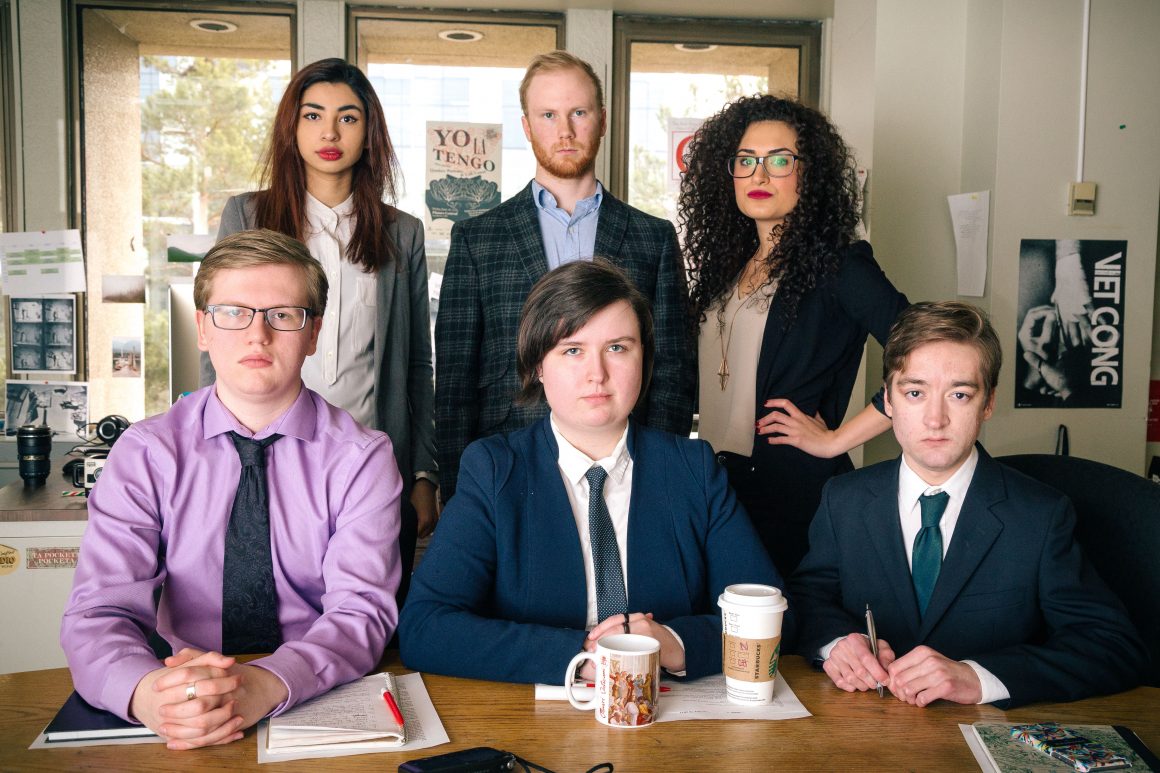
2017 Students’ Union Election Supplement
Panelists
President — External — Operations & Finance — Student Life — Academic
Endorsements
[dropcap style=”inverse”]E[/dropcap]very year during reading week, the Gauntlet puts together our Students’ Union election supplement to inform students on who is running, what they plan to do if elected and who we think is best for the job.
We invite all candidates vying for executive positions to our office — after the one time every year that we actually clean it — for a five-minute platform pitch and a 10-minute question and answer session. A panel of Gauntlet staff picks apart the platforms and grills candidates on some of the key issues they would face if elected.
Last year, the MacHall ownership dispute between the SU and the University of Calgary demonstrated the need for strong student government. The dispute — and the ensuing lawsuit — was inherited by this year’s Students’ Legislative Council and will be passed on to whomever is elected this March. The failure of the injunction application this year and the resulting loss of control over roughly $1.9 million in MacHall-based revenue puts the incoming SLC in a difficult position. U of C students need competent student leaders now more than ever to address the MacHall ownership issue and work in the interest of students.
We know the election period can be annoying. Posters cover every possible inch of wall space and costumed candidates invade your classes to beg for votes. Student elections can seem juvenile and meaningless, but their outcomes are still significant. The SU’s decisions and policies affect the student body as a whole, whether it’s fighting for tuition fee regulation or keeping country music out of Bermuda Shorts Day. It is crucial we elect capable officials who have our best interests at heart.
Since you can’t properly judge a candidate on an outdated meme poster or a 90-second classroom pitch, the Gauntlet is here to inform you of the candidates’ qualifications and platforms. Once you’ve read our reviews, look for our panel’s endorsements on the last page. These are the candidates we feel would do the best job if elected based on their interview, platform and previous experience. But don’t just take our word for it. Every candidate’s platform is on the SU website, and most candidates make themselves available during the campaign period if you have any questions.
And of course, don’t forget to vote March 7-9. You can vote online through your student centre or in person via ballot boxes in MacHall.
Panelists
President
[hr gap=”15″]
The president is the leader of the Students’ Union. They have the most flexible portfolio, but are generally in charge of setting the direction of the organization. They also maintain official relations with the university, oversee the work of Students’ Legislative Council and vote on the Board of Governors. Look for an assured, pragmatic candidate who is aware of the challenges facing the SU.
Branden Cave
In his opening pitch to us, Branden Cave said that he wanted University of Calgary students in 25 years to look back on his year as Students’ Union president as “a turning point for students on campus.” But consisting of mostly obvious points, Cave’s platform doesn’t exactly promise sweeping change.
That being said, with a year of SU executive experience already under his belt, Cave is a conservative, safe and responsible choice for SU president.
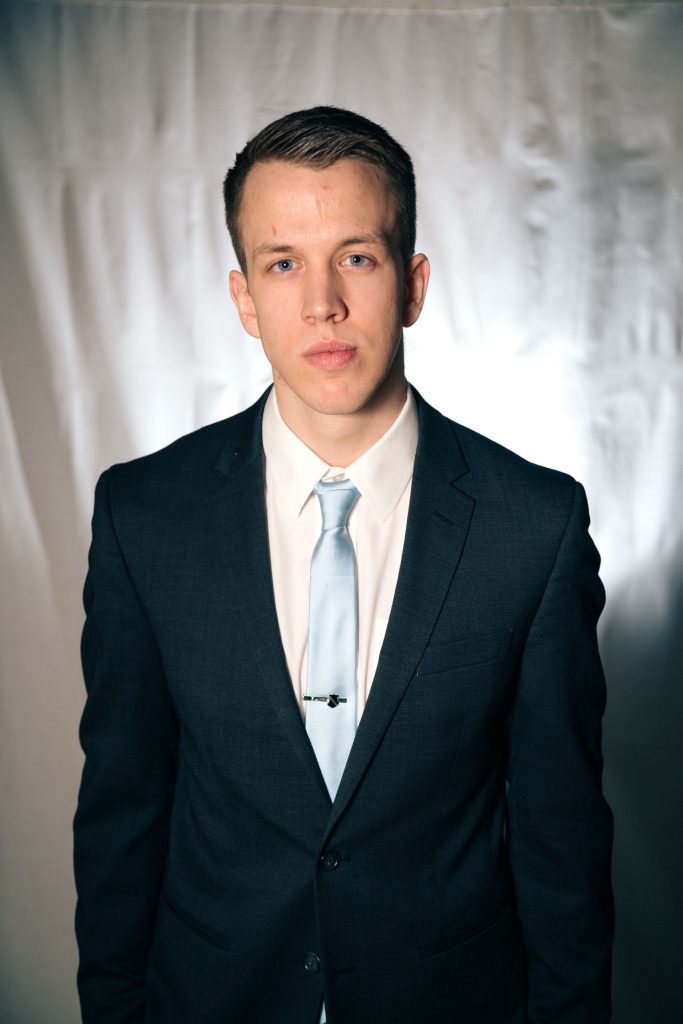
“I know how to lead student organizations and make an impact that lasts just beyond the year that I’m in office.”
Having served this year as vice-president operations and finance, Cave has the most sophisticated understanding of the MacHall dispute among the three candidates. Cave says he spent the past year developing positive relationships with university administration and is confident that a return to the negotiating table would result in a verdict that benefits students. While not a flashy approach, Cave’s strategy prioritizes a quick resolution in order to move on with future redevelopment of the building.
Many of Cave’s other priorities are fairly obvious. His ideas about the upcoming Calgary municipal election fall more under the portfolio of the vice-president external, but it’s nice to see that he’s on board with bringing the election to campus. And prioritizing student space during campus redevelopment is always a good thing.
His weakest platform point is his “President’s Consultative Task Force.” Cave is convinced he’ll be able to showcase direct student voices, but we have trouble believing it won’t be anything more than another unproductive cog in the SU’s bureaucracy. Cave says he will focus on recruiting a variety of students to the task force, but it’s incredibly difficult to get uninterested student involved with the SU. We elect our student representatives for students to have a direct voice in student government. It’s hard to justify adding yet another appointed committee.
As vice-president operations and finance, Cave carried himself extremely professionally and is responsible to a fault. While he would make an incredibly competent leader of the SU, he runs the risk of being bogged down by policy minutiae or unnecessary committee work. But even his worst ideas — like the consultative task force — show a level of careful thought and low risk behind them.
Ultimately, Cave’s ideas are safe, sound and clear. His experience as an SU executive makes him an ideal choice for president. He’s not going to shake up the system, but he would keep things rolling.
Selected Qualifications:
• SU vice-president operations and finance 2016–17
• Students of the Arts and Science Honours Academy president 2014–16
Graham Duff
When he ran for vice-president student life last year, Graham Duff impressed our panel with his creative platform and attention to research and logistics. While he did not inspire the same level of confidence with his interview this year, Duff would still make a capable Students’ Union president.
Duff said his biggest priority is reaching an agreement with University of Calgary administration over MacHall ownership. The SU lost operational control of the building to administration last year and Duff wants to work with the university to craft a “control and share” solution that benefits both parties. It’s good to see Duff take a practical approach to the issue, though it doesn’t necessarily set him apart from the other candidates’ similar stances.
![“I have a lot of [plans] that are short-term that I want to have delivered immediately.”](https://www.thegauntlet.ca/wp-content/uploads/2017/02/NEWS_Candidates_Justin_Quaintance-9544-683x1024.jpg)
“I have a lot of [plans] that are short-term that I want to have delivered immediately.”
Duff also wants the SU to be more accountable and transparent to the student body. By simplifying the way the SU summarizes its budget and financial statements, he claims students will be more willing to scrutinize them. He also wants to make it easier for students to petition the SU to vote on policies by decreasing the number of signatures required from 2,500 to 500. Duff’s intentions are commendable, but it’s unclear how on-board the future vice-president operations and finance would be with his ideas, as budgets and policy fall within that portolio.
While Duff’s platform shows he has a firm grasp of issues facing the SU, his biggest weakness is that he wants to do too much. His platform is nearly twice as long as the other candidates’ and he could only get through half of it in his five-minute platform pitch — even though he seemed to prioritize speaking over breathing.
He also runs the risk of stepping on the toes of the other executives. With such an expansive platform, it feels like Duff wants to run the entire SU singlehandedly.
Criticisms aside, Duff is still a viable choice for president. He has been a constant figure in campus politics this year, is well versed in the biggest issues facing U of C students and thoroughly understands the university’s various governing processes. It’s obvious he’s been preparing for this election for a long time.
Selected Qualifications:
• Faculty of Arts Students’ Association vice-president operations and finance 2016–17
• Deputy speaker, Students’ Legislative Council
Steeven Toor
Steeven Toor has a strong understanding of student issues and is a viable choice for Students’ Union president, despite a few questionable platform points.
Toor takes a more aggressive stance on the MacHall ownership dispute than the other candidates, stating that he will continue to pursue student ownership of the building. He said past student investment in the building needs to be recognized and that he wants to consult with students to shape what MacHall will look like in the future. He recognizes that the lawsuit is negatively affecting both students and the university administration, but said he still would have filed the lawsuit if he were in former SU president Levi Nilson’s shoes. He wants to maintain positive relations with administration and his demeanour suggests he would be a level voice in negotiations.
![“The way to go about [fighting discrimination] is with education and creating a positive dialog.”](https://www.thegauntlet.ca/wp-content/uploads/2017/02/Supplument_Justin_Quaintance-9568-edit-683x1024.jpg)
“The way to go about [fighting discrimination] is with education and creating a positive dialog.”
Toor plans to donate $4,000 — 10 per cent of his executive salary — to the Diversity Fund, in accordance with his personal religious views. He said further funds could come from outside sources, including the U of C or the Board of Governors, but securing that money wouldn’t be easy. The other problem is this idea’s potential for longevity, as future presidents may not want to donate their salary.
Additionally, Toor hopes to increase student representation on Board of Governors standing comittees, citing concerns that half of the board’s committees don’t currently have any student input. He plans to accomplish this by continuing to voice these concerns to the board, but whether that will have any impact remains to be seen.
With regards to accountability, Toor also promises an open-door policy with roaming office hours to make himself more available to students. Other executive candidates promise this as well, and it’s good to see SU hopefuls promise to be more visible on campus.
Toor recognizes the responsibilities of the president and seems prepared to take them on. While faculty reps usually run for a vice-president position before they make the jump to the president’s office, Toor’s confident interview shows he wouldn’t be phased by the responsibility.
Toor is definitely the underdog of the presidency race and not all of his ideas are home runs. But he’s got the leadership skills to be a successful president.
Selected Qualifications:
• SU Cumming School of Medicine representative 2016–17
• Executive manager of a family business
External
[hr gap=”15″]
The vice-president external is the Students’ Union’s representative to municipal, provincial and federal governments. They are also the primary delegate for the many umbrella lobbying organizations the SU takes part in. Vote for the candidate you think can hold their own in a meeting with cabinet ministers or city councillors.
Shubir Shaikh
Shubir Shaikh’s experience as a political club president, Students’ Union Faculty of Arts representative and student-at-large on the University of Calgary Board of Governors makes him an experienced candidate for vice-president external. However, his interview didn’t display the confidence necessary for the demanding external portfolio.
Shaikh wants to build off the SU’s current lobbying priorities for the upcoming Calgary municipal election. These include pushing for secondary suite legalization, property tax exemption for university residences, improved transit access for students in under-served neighbourhoods and a large Get Out the Vote campaign. These are all commendable ideas, though they’re admittedly already things the SU is doing.
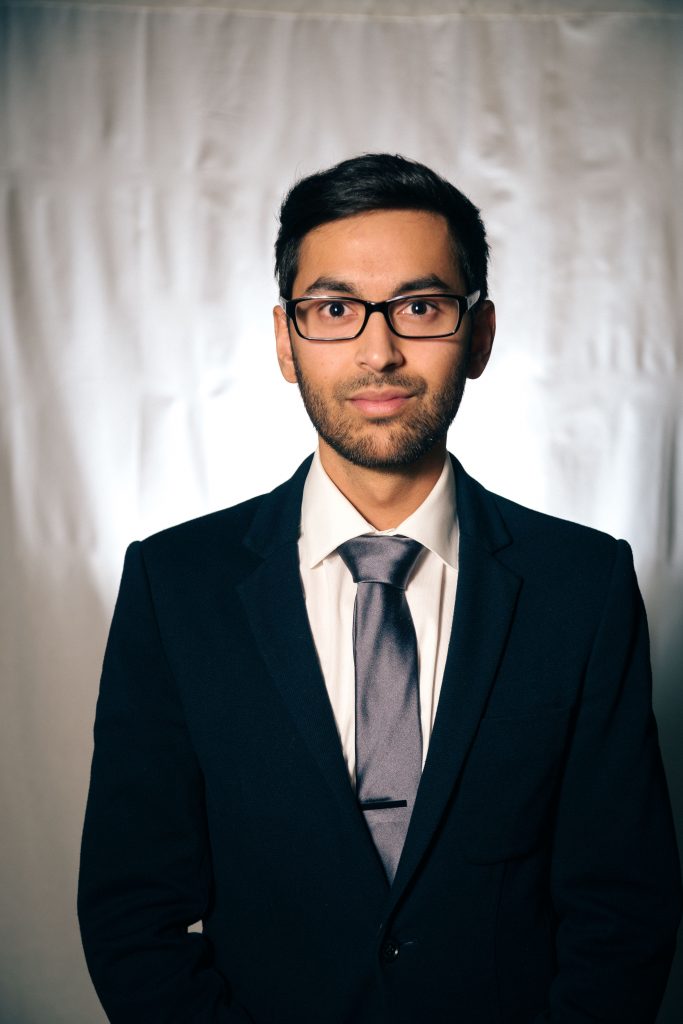
“We can definitely make some huge headways if we tackle the right priorities carefully.”
Shaikh’s best municipal idea is partnering with other post-secondary institutions to bring back the Calgary Student Caucus for a large Get Out the Vote campaign. This is a good approach to lobbying that would ensure city council candidates are more aware of student issues.
Provincially, Shaikh’s major focus is Open Educational Resources. He wants U of C professors to have an incentive to use OER, particularly for large classes like Economics 201. He admitted this would be tough, but said he could make headways alongside the Council of Alberta University Students. When prompted to provide a more concrete plan for success, he suggested public awareness campaigns, which is a good first step, though already in place at the internal level.
Shaikh’s other provincial aims include closing tuition loopholes that allow for market modifiers, regulating tuition to be capped by the Consumer Price Index and expanding the Student Temporary Employment Program to be year-round. These are solid goals and standard platform material for any realistic vice-president external candidate.
Federally, Shaikh’s ideas for working with the Canadian Alliance of Student Associations are good, albeit unoriginal
Shaikh has sensible goals, but a concern has to be his lack of creativity — much of his platform is pulled directly from the SU’s current external priorities. While this is a safe approach, Shaikh could benefit by offering more of his own ideas.
Shaikh’s platform shows he clearly understands the role and scope of the external portfolio, but his soft-spoken nature lacks the poise or assertiveness of his opponent. That said, his previous SU experience and interactions with politicians through the Board of Governors make him well-prepared for the role.
Selected Qualifications:
• Board of Governors student-at-large, 2016–17
• SU Faculty of Arts representative 2015–16
Kendra Toth
Kendra Toth has the ideal disposition of a vice-president external, displaying a balance of knowledge and personal charm in her interview. While her platform isn’t as comprehensive as her opponent’s, her warm personality and thorough research on the issues make her a strong choice for vice-president external.
Like her opponent, Toth’s priority is the upcoming municipal election. She understands the major issues facing students and has already advocated against residence property taxes as the current president of the Residence Students’ Association. Toth is the only candidate of any position to propose two forums on campus for this election — one for the mayoral race and one for the Ward 7 race. She also mentioned advocating for secondary suite legalization and a student transit fines appeal board. Both issues are vital to University of Calgary students, though they’re admittedly already being pursued by the current Students’ Union.
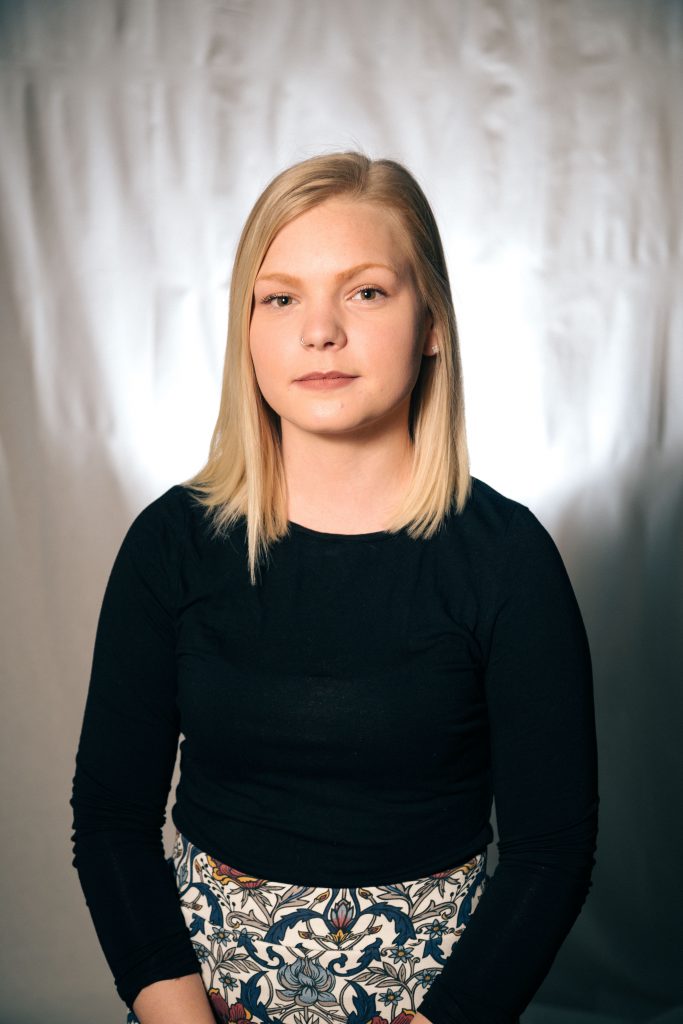
“I’m a bit of a workaholic and love to put whatever I have into the position that I’m in.”
Toth said she is willing to work on advocacy for provincial student jobs, particularly surrounding the Summer Temporary Employment Program. Both candidates highlight these priorities in their platforms, which is reassuring to see. Toth differs in that she wants to expand the program to include internships and co-ops. She also wants to prioritize advocacy around tuition for both international and domestic students. These are already priorities of the Council of Alberta University Students and Toth said she is on board with working on these with CAUS.
The biggest concerns with Toth are her lack of governance experience outside the RSA and the fact she didn’t bring up federal issues until prompted. She admitted that municipal and provincial priorities are more her focus. However, she was able to demonstrate a thorough awareness of federal advocacy issues when asked and said she is excited to advocate for student jobs and other issues on a federal level.
Toth’s strongest quality is her demeanour. What she lacks in political experience, she makes up for with her friendliness and strong will to learn. Her answers to all our questions were concise, thoughtful and clear.
Ultimately, while her platform is less broad than her opponent’s, Toth’s personality makes her an excellent candidate for the position. Vice-president external is all about schmoozing with powerful personalities and Toth seems capable of schmoozing with the best of them.
Selected Qualifications:
• Residence Students’ Association president 2016–17
• External coordinator for the Residence Athletics Association 2015–16
Operations and Finance
[hr gap=”15″]
The vice-president operations and finance is responsible for the Students’ Union’s budget, SU policy and the fiscal operation of their businesses in MacHall. They also chair several SU committees.
Briana Stallcup
With a platform focused entirely around accountability and uprooting the system, Briana Stallcup is an adventurous and unconventional choice for Students’ Union vice-president operations and finance. However, if elected, many of her ideas would be incredibly difficult to execute.
Stallcup’s most intriguing platform point is convincing the university to publicly release the monthly budget pertaining to the $1.9-million annual revenue they will collect from MacHall vendors — something the SU lost control over this year with the failed injunction ruling. In theory, more fiscal transparency from university institutions should be pursued. However, Stallcup seems shaky on the details of how this money is distributed in the first place, and convincing the university to do anything — let alone release financial details they don’t want to — is no easy task.
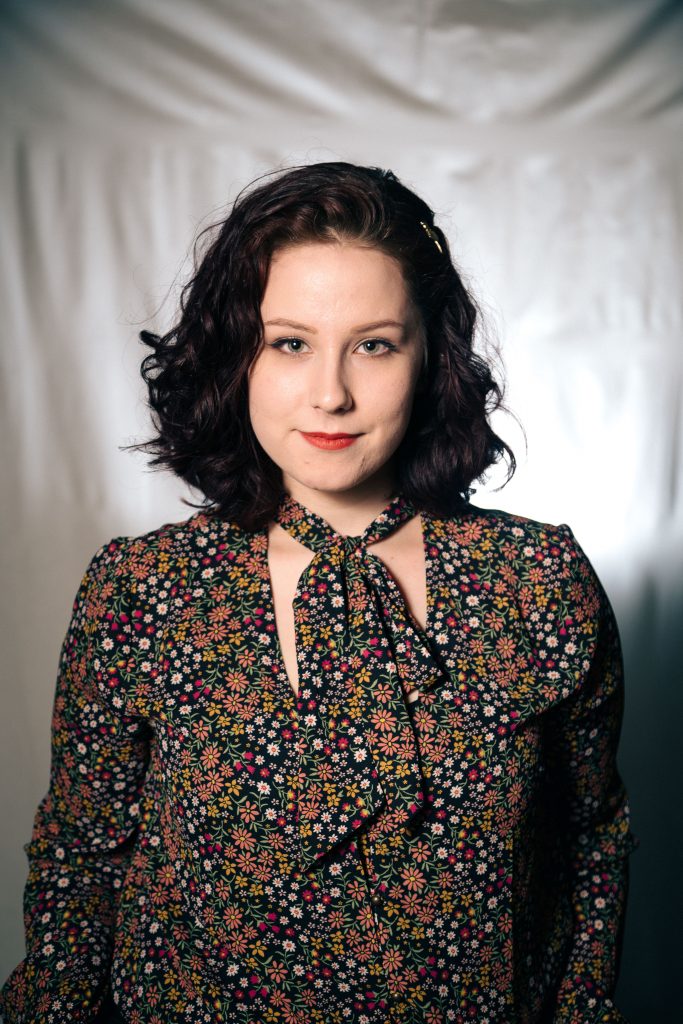
“In order to uproot a system of oppression, you have to infiltrate it from within.”
Stallcup’s banner idea is a reallocation of funds, particularly regarding “Colour Night” — the SU’s annual elected official transition party. Stallcup says the event creates a divide between the SU and students and proposed an open “meet-and-greet” with the student body instead. She’s right that incoming and outgoing SU elected officials partying the night away doesn’t scream open engagement, but it’s a longstanding tradition in the SU. It’s hard to imagine other members of Students’ Legislative Council agreeing to give up their annual bash.
Similarly, Stallcup hopes to reallocate the thousands of dollars spent annually on “De-stress Kits,” which she finds ineffective. However, she doesn’t have any idea of what that replacement would be, claiming that she’ll rely on science and consulting with other elected officials to find out what actually de-stresses students.
Stallcup believes character is the most important part of a candidate and her heart is definitely in the right place. Her prioritization of student engagement and accountability are admirable and she is incredibly passionate about student issues. However, her platform is a lot of ideas with little concrete planning on how to accomplish them. When asked what she would do if SLC wasn’t on board with some of her plans, she said she’d reevaluate and adapt to what people wanted. This lack of thought or planning is alarming.
Ultimately, Stallcup is this year’s anti-establishment candidate. If an overhaul of SU tradition is what you feel is needed, feel free to give her your vote. However, don’t trust that she’ll be able to follow through on anything she promises.
Selected Qualifications:
• Executive for Society of Undergraduates in Economics
• Executive for Consent Awareness and Sexual Education club
Ryan Wallace
Ryan Wallace is a strong and competent candidate with a wide understanding of the issues that will face the Students’ Union in the upcoming year. His platform centres around reviewing the SU’s existing policies to improve their accessibility, as well as reviewing the effectiveness of the services offered by the SU.
Wallace’s platform approaches transparency in a positive way. He believes improving access to information and policies would improve transparency. When questioned about the work of current vice-president operations and finance Branden Cave, Wallace offered constructive criticism that shows his approach to policy review differs from his predecessor.
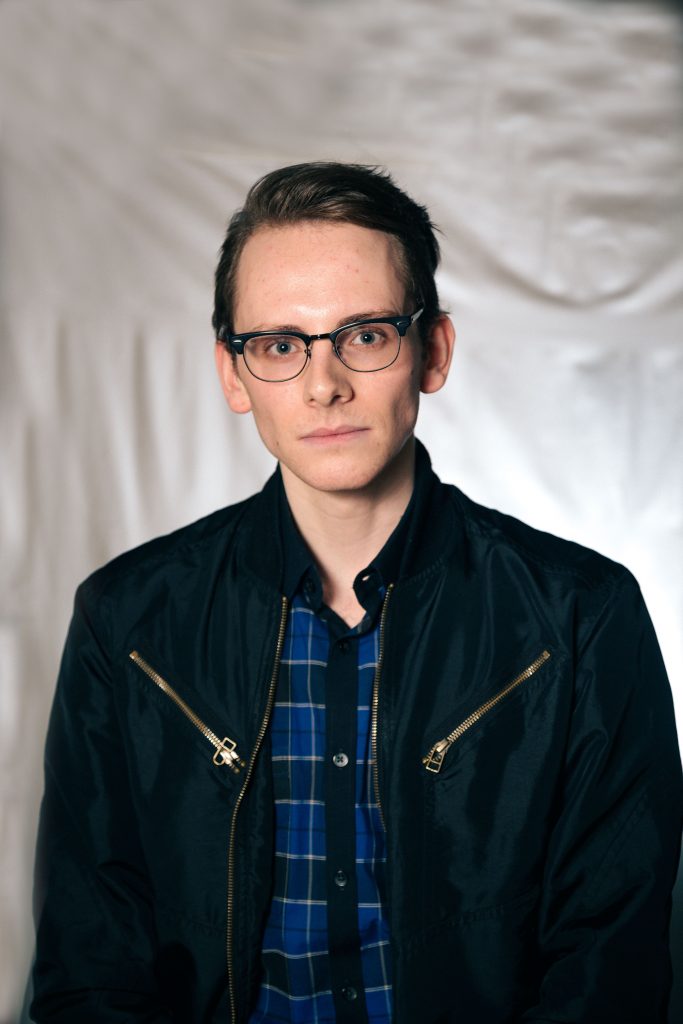
“There are a lot of policies, and that can be difficult for students to navigate.”
Wallace wants to conduct a review of the Health and Dental plan to ensure its long term success. His approach to the Health and Dental plan shows his understanding of the vice-president operations and finance’s role as well as his familiarity with the SU in general.
Wallace plans on reviewing the services offered by the SU in order to ensure they are run efficiently and cost-effectively. This is part of his approach to minimize the short term damages of the MacHall injunction loss. While these ideas are not catchy, he demonstrates a practical approach to dealing with the short term implications of the injunction loss. He was able to cite specific obscure programs in need of review — such as the SU’s online housing service — suggesting his accountability efforts aren’t just an empty promise.
One red flag for Wallace is that he fell short when asked about his long-term plan for MacHall. The ownership lawsuit will likely continue next year and the vice-president operations and finance will play an integral role in the SU’s position regarding the building’s future.
Wallace has plenty of experience getting things done on campus through his work with the SU and the Haskayne Students’ Association. While he may not have the most exciting platform, he has the experience and knowledge needed to effectively lead the SU’s operation through next year.
Selected Qualifications:
• SU Haskayne School of Business representative 2016–17
• Former Haskayne Students’ Association president and vice-president marketing
Student Life
[hr gap=”15″]
The vice-president student life is in charge of student clubs, events like Orientation Week, Frostbite and Bermuda Shorts Day, as well as mental health and overall student wellness initiatives. Pick a candidate who understands all parts of the portfolio and is enthusiastic about campus life.
Matt Abalos
Matt Abalos is determined to get students aware and engaged. Alongside experience on Students’ Legislative Council this year, he demonstrates a fair understanding of what the position entails. However, many of his platform ideas are faulty.
Abalos wants to make students at the University of Calgary more aware of the services the Students’ Union provides. He proposes creating a “Trivia Day” where he and support staff from the SU would question students on campus about resources available to them — get the question right and you get food, get the question wrong and you learn what the resource is. But those who are willing to interact with the SU are likely already aware of the resources on campus. Those who are skillful at dodging hallway canvassers — earbuds in, eyes forward — would not be reached.
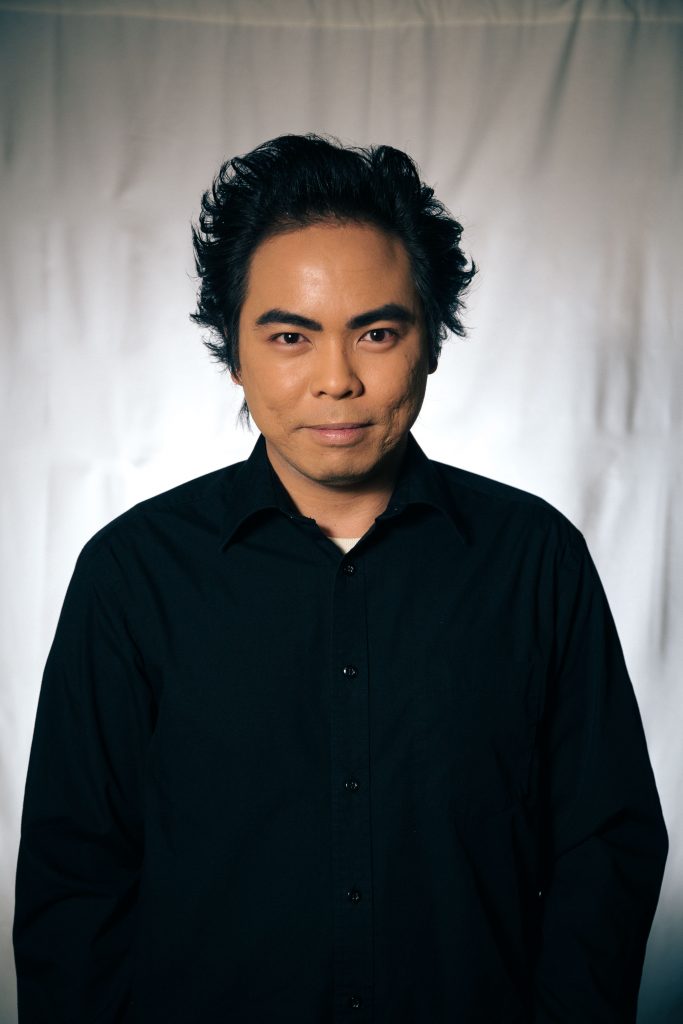
“A lot of students tend to not be aware of resources on campus.”
Abalos also wants to create an SU app, even though all previous app proposals have failed due to their infeasibility. His idea to make this proposal successful is giving honoraria to computer science students to develop the app. It’s a weak solution with little thought put behind it.
His proposal to clarify how clubs can apply for funding would make a positive impact on campus and is easily his strongest point. His previous experience on the SU Clubs Committee means he knows how to engage with clubs and how funding applications are judged and distributed. This would make it easier for clubs to successfully apply.
Abalos also wants to push for improvements to campus study spaces and classrooms. Working with administration, he hopes to improve some of the U of C’s spaces to leave a legacy. He demonstrated a good understanding of the university’s Classroom Alteration Request and Facility Alteration Request program. However, he only listed applying for Quality Money grants to fund these renovations. Quality Money shouldn’t be a catch-all method for SU executives to secure funding.
Abalos plans on tackling mental wellness on campus through the creation of “Paint Night.” He said the event could be in collaboration with the Art House Union club on campus, which already provides workshops for students in visual arts on campus. When pointed out that paint nights can be quite expensive to host — paint, canvasses and session instructors cost a lot of money — Abalos said he hopes to work with local businesses and use Michael’s coupons to cut back costs on the initiative. His other point in his mental health strategy is to increase awareness of resources, through events like his Trivia Day.
Abalos has the best of intentions. It’s admirable to want to leave the university better than how he found it. However, his plans on how to do so need work.
Selected Qualifications:
• RSA student representative for two years
• SU Faculty of Arts representative 2016–17
Hilary Jahelka
Hilary Jahelka’s reasonable platform and past experience in activism make her a strong candidate for vice-president student life. As an executive of the Consent Awareness and Sexual Education club and member of the Implementation Committee for the University of Calgary’s draft Sexual Violence Policy, Jahelka has already contributed to the work of the portfolio. Though a bit unoriginal, Jahelka’s platform is thorough and achievable, especially for someone with her connections.
Jahelka wants to revamp the Junior Executive program implemented by former vice-president student life Kirsty McGowan in 2015. Jahelka’s years of experience with CASE make her well informed about club issues and she has already spoken to the SU clubs coordinator to confirm that leadership transition is one of the biggest problems that clubs face. Jahelka hopes to change the program by implementing proper guidelines for clubs to follow. The platform point may not be very unique, but it is practical and attainable.
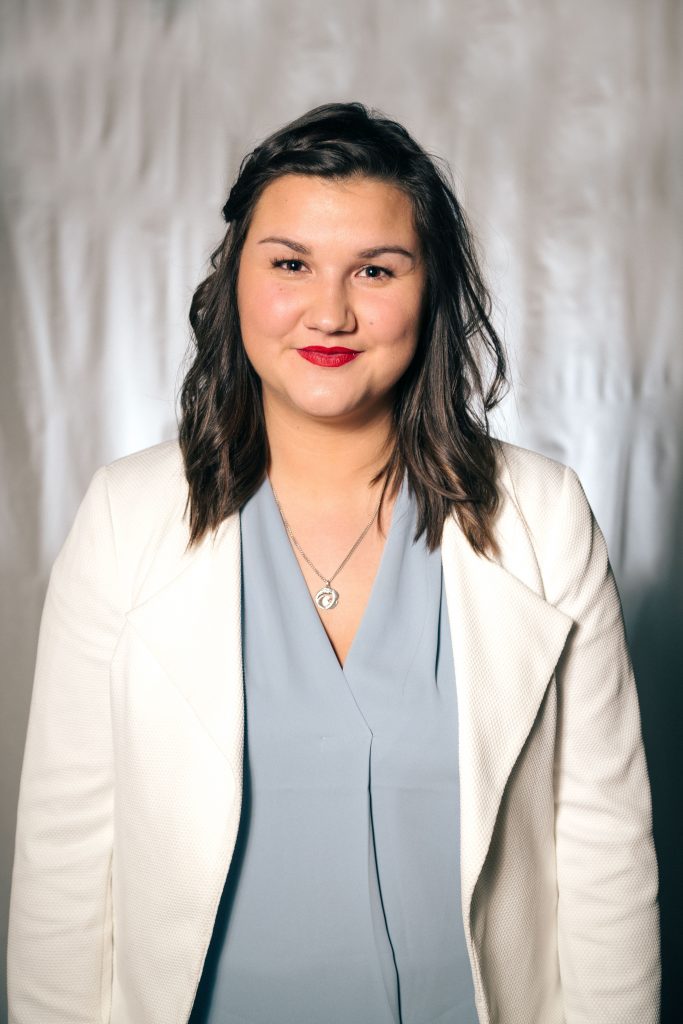
“My platform expresses my
passion as well as my expertise.”
Jahelka also wants to address abusive relationships on campus by implementing the “Stepping Up” program. She cited recent data from the 2016 National College Health Assessment survey to justify the program’s need. The U of C already offers peer mentoring and bystander intervention training, but what makes this program different is its three-tier model. Jahelka based the idea on the success of the same program at Mount Royal University and the University of Lethbridge. Most importantly, Jahelka has already spoken to the director of the Wellness Centre about this program and is on track to achieve this goal.
Mental health is an aspect of the portfolio where Jahelka does not offer anything particularly new. That said, she understands that the work the current vice-president student life has done on mental health would be transitioned over to her. She mainly aims to keep things as they are. But while she does hope to engage more students and reach out to a wider demographic, she did not present a concrete plan as to how she would do so.
Another intriguing point is Jahelka’s philosophy that the student life role is an “activist” position. It’s a unique idea that inspires hope that she’d be able to achieve certain platform points.
Jahelka’s platform is safe and thoughtful, albeit slightly unoriginal. A strength is her activism-centered approach, as well as her focus on initiatives that she has already worked on in the past. While her platform does not contain many new ideas, what it does contain is important and achievable. Jahelka is incredibly knowledgeable and experienced and she has already taken steps towards fulfilling most of her platform points.
Selected Qualifications:
• CASE vice-president external 2016–17
• Community advisor in U of C residence
Arshmin Kang
Arshmin Kang is well-intentioned, but he is the most ill-prepared candidate for vice-president student life. He lacks a fundamental understanding of what the role entails and seems largely unaware of the existing services on campus that are tied to the student life portfolio.
Kang wants to address loneliness and mental health issues on campus by increasing the Fitness Centre’s operating hours. Citing research from his kinesiology degree, he said exercise can help with mental and emotional issues faced by students. The connection between exercise and mental health is an excellent observation that has the potential to make a great platform point, but Kang does not know how to tap into this potential. Plus, the gym is already open from 6:00 a.m. – 11:00 p.m. on most weekdays and 8:00 a.m. – 9:00 p.m. on weekends. Kang aims to convince Active Living that the extra staff and maintenance costs would be worth it in the long-run because it would decrease health care costs, but he provided no plan for how he would approach this.
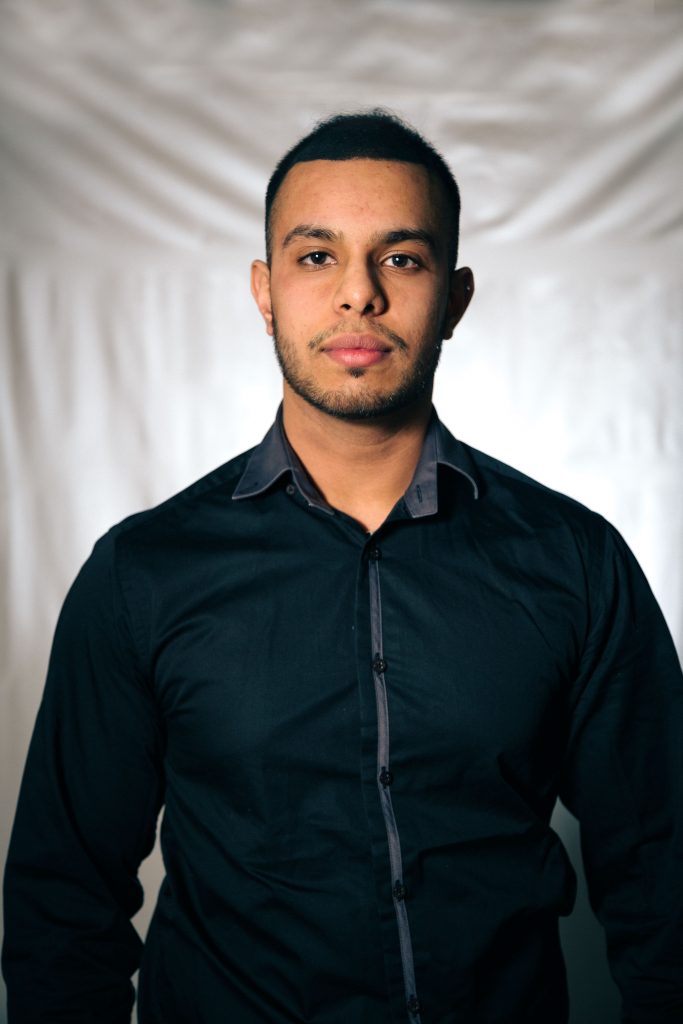
“I feel I have a good grasp on the difficulties students have and the difficulties they face.”
Kang also wants to decrease parking fees on campus, even though parking fees do not fall within the Students’ Union’s jurisdiction — and especially not the vice-president student life’s. The University of Calgary bases its parking fees on what similar-sized institutions charge and has stated in the past that they would not decrease these rates. Kang acknowledged that the task would be difficult to achieve, but doesn’t seem to realize that it’s practically impossible. He did offer an alternative solution for when his parking plan inevitably fails — a list of places just off campus where students can park for free.
Kang also wants to bring Mucho Burrito to MacHall. He acknowledged that this platform point falls under the vice-president operations and finance’s portfolio, but Kang still included it in order to “get the ball rolling.” He said he decided on Mucho Burrito after asking some people what they would like to see in MacHall and because Mount Royal University has one.
He also wants to raise awareness of existing services on campus. However, his own awareness seems lacking — he continually referred to the Q Centre as the “Q Room.” He also lacks club experience, which is pivotal for the position.
Kang has the right intentions and will to improve the student experience, but he does not understand how to properly do so. He is unaware of what the portfolio entails and unprepared for the job. He also missed his first interview slot with us and had to reschedule. All in all, Kang is a weak candidate.
Selected Qualifications:
• Volunteer at Peter Lougheed Hospital
• Drug Awareness Foundation Calgary Volunteer
Academic
[hr gap=”15″]
The vice-president academic is responsible for improving the academic experience and promoting undergraduate research. Their job mostly consists of sitting on committees, meeting with various members of university administration and administering programs like the Teaching Excellence Awards and Undergraduate Research Symposium.
Courtney LeBlanc
Courtney LeBlanc delivered her platform succinctly and confidently. Her strong and original ideas coupled with her assurance of maintaining work done by previous Students’ Union executives makes her a viable choice for vice-president academic.
LeBlanc wants to advocate for all departments to post course outlines of previous classes online, as many students read previous outlines to see what they’re getting into. LeBlanc cited past discussions within the Faculty of Arts Teaching and Learning Committee about this objective to prove the concept is feasible. However, these discussions would need to happen with other faculties for this goal to be implemented. If accomplished, this would benefit every student.
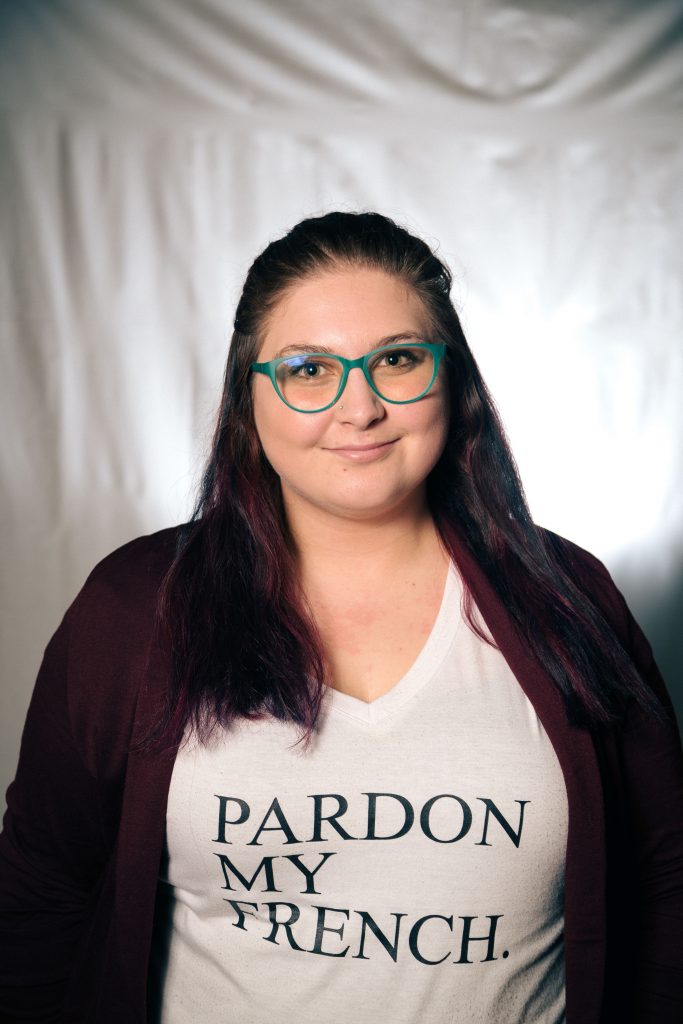
“I’d rather utilize my soft power and create those relationships.”
Her second point is advocating for faculties to list when courses will next be offered so students can plan for graduation. Though she admitted that this goal is idealistic — planning far into the future may not be feasible for many courses — she did note that other Canadian universities list when a course will next be offered, meaning there is precedent.
LeBlanc also wants to work on getting credits from other universities to transfer over to the U of C. Currently, this can be a six-month ordeal and LeBlanc wants to work with Enrolment Services to streamline the process. She wants to get more courses listed in databases of the Alberta Council of Admissions and Transfers. This would actually be very difficult to execute internally as the registrar’s office is complex and such a project would involve convincing other universities to speed up their own transfer credit processes.
In continuing with the work of her predecessors, LeBlanc wants to expand funding for the Undergraduate Research Symposium (URS) and push to promote the use of Open Educational Resources (OER). Though LeBlanc’s platform is not very research-oriented, she plans to build upon her previous relationships with possible donors for URS. As for OER, she hopes to take notes from other universities who use these resources to see how they could be used at the U of C. She also hopes to make departments already aware of the funding in place. However, these statements make the issue seem simpler than what it actually is — if it were this easy, classes would already be using OER.
Building positive relationships with faculties and administration will be key for LeBlanc to achieve her platform. Thankfully, LeBlanc’s exuberant personality and emphasis on “soft power” might make this possible.
Selected Qualifications:
• SU Faculty of Arts representative 2016–17
• Peer Helper with various Leadership and Student Engagement programs
Tina Miller
With an attainable platform and a strong work ethic, Tina Miller is a sound choice for vice-president academic. She understands academic issues faced by students and already has the connections needed to accomplish her goals.
Miller’s approach to undergraduate research involves creating a centralized database to provide students with a more direct path into research. The database would also help with grant applications and opportunities to showcase finished projects in poster fairs and symposiums. This hasn’t succeeded in the past, so she has a tough road ahead of her.
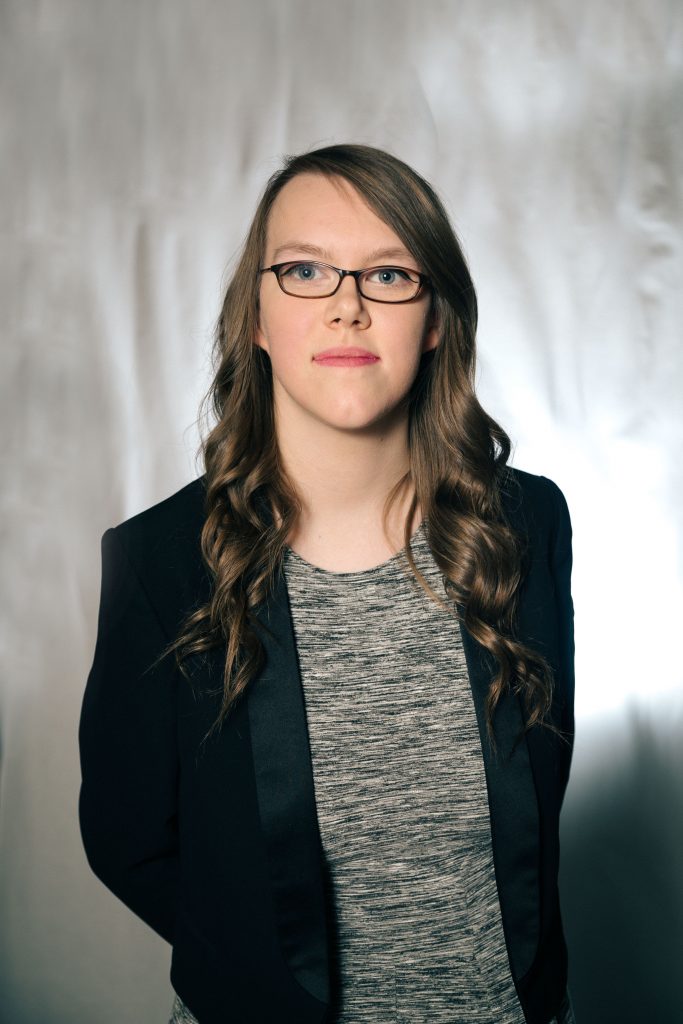
“My priority is the first point I put on there, which is the research. It would be valuable across all faculties.”
Also regarding research, Miller wants to offer workshops through the Students’ Union for writing research applications and abstracts. This is a practical idea that could benefit students more immediately than the database.
The SU vice-president academic is the lead organizer of the Undergraduate Research Symposium (URS). Miller has experience with the URS, having sat on the selection committee last year. After recent controversy around URS abstract selection, she said she wants to give students on the selection committee more training, but maintains that the symposium should focus on featuring research that all students can understand.
Miller also wants to make academic advising more accessible to students by creating an online system for scheduling appointments with enrolment services. Other services already have a similar scheduling system and Miller knows exactly who to work with to make this happen. Her other plan — bringing peer-mentoring to more classes — is similarly feasible.
It’s difficult to get professors to commit to Open Educational Resources (OER), but Miller’s ideas seem effective. She wants to encourage instructors to use OER by focusing on modifying existing resources and hopes to convince the university to add use of OER to considerations for teaching awards. She also wants to use existing funding to put more textbooks in reserve at the library. These are concrete and well-thought out ways of making academic resources more accessible to students.
Near the end of her interview, Miller acknowledged the work of her predecessor and said she plans to continue working on issues like changing exam deferral procedures and obtaining a fall reading week. These long-term initiatives are important and it’s good to see them mentioned, even if they aren’t priorities.
Miller’s experience and accomplishments on this year’s Students’ Legislative Council are valuable, but it’s her confidence and encyclopedic knowledge that make her an excellent candidate to take on the vice-president academic portfolio.
Selected Qualifications:
• SU Faculty of Science representative 2016–17
• Leadership and Student Engagment Student Advisory Council
Romina Soudavari
Romina Soudavari is a well-intentioned but unprepared candidate for vice-president academic. While some of her platform points are appealing, Soudavari lacks research on how to achieve most of her goals.
Soudavari’s main platform point is changing exam times from 8:00 a.m. – 10:00 p.m. to 9:00 a.m. – 9:00 p.m. She argued that other institutions such as the University of Lethbridge have implemented similar schedules. She suggested that more exams could be written in empty classrooms to make up for the loss of scheduling time.
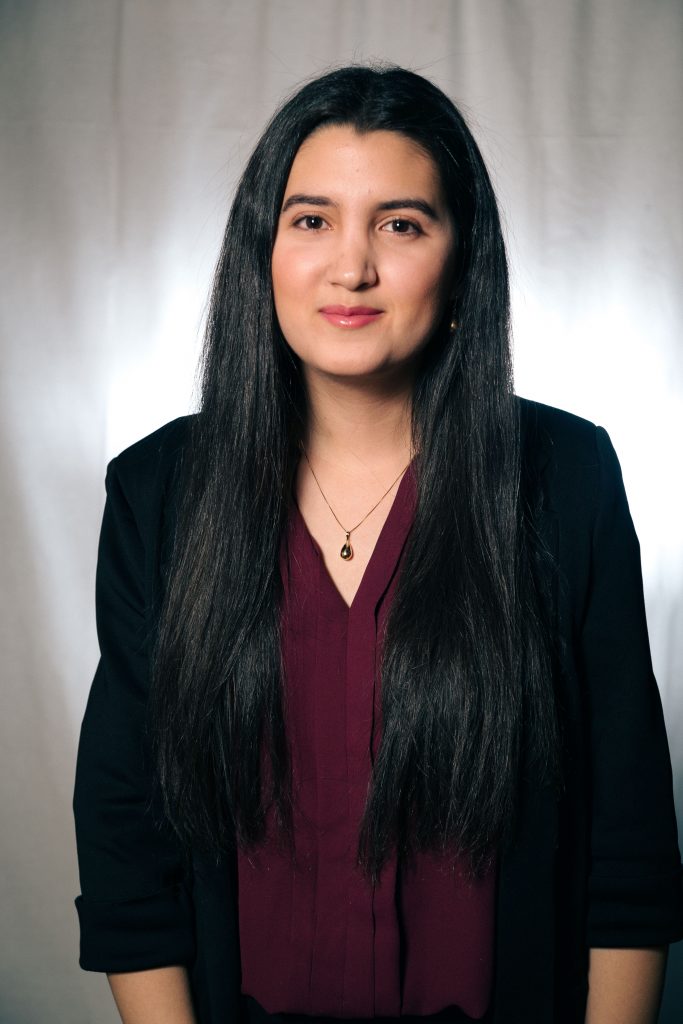
“My campaign centres around thoughts and ideas I’ve gotten from students over the years of attending the U of C myself.”
Unfortunately, Soudavari lacked a concrete plan on how she would go about achieving this at the U of C, which is much larger than the U of L. She lacks a solid understanding of administration at the U of C and does not realize that this goal is likely impossible. She also did not know who the current registrar is, proving a lack of preparation.
Another one of Soudavari’s main goals is to have students donate their old textbooks to an open textbook program. However, this showcases a fundamental misunderstanding of how open textbooks work.
Soudavari also wants to host academic events and workshops that help students understand how the U of C operates. While this is a good idea, many academic clubs – including the Society of Undergraduate Economics, Faculty of Arts Students’ Association and Easy Ace – already put on similar events. This could be a strong platform point if she is able to ensure her events are fundamentally different than the ones already put on.
Soudavari’s strongest idea is her plan to implement mid-semester evaluations of teaching assistants. A mid-semester evaluation would help improve levels of instruction before students leave the classes and she suggested feasible outlets such as D2L for this. This platform point has been promised — and has failed — in past years, but Soudavari provides a logical solution.
Another red flag is Soudavari’s understanding of research – or lack thereof. She stated that outside the Faculty of Science, other disciplines at the U of C are not very research-focused. This is a misguided view of the university’s academic priorities.
Soudavari is well-intentioned, but lacks important knowledge of the vice-president academic’s role, including an understanding of the committee work required. More thorough research and additional experience on campus would make Soudavari a much stronger candidate if she wants to run in the future.
Selected Qualifications:
• Vice-president administration with the Mustard Seed U of C chapter
• Taught English overseas
Endorsements
[hr gap=”15″]
